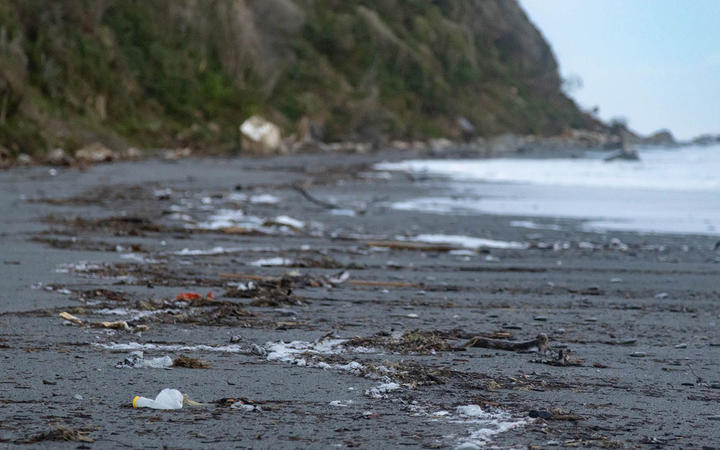A couple of things happened last week. Firstly, it rained in Auckland. A lot. And one of the simplest things we can do to improve environmental sustainability was exposed. Yet again.
After all that rain, I was like many of us and couldn’t wait to get out of the house. And so, my weekend walk on the beach was rather overdue and very welcome.
Sadly, what I saw was not welcome. The neighbourhood stormwater system had delivered debris of every imaginable type to the very beaches, that only a few weeks ago were basking in their end of summer glory.
READ MORE:
* Strong economies create wellbeing, not government
* Youthful enthusiasm or knowledge and experience? I’ll take both please
* We need real journalists, not just social media
* Construction companies are among a downturn’s early victims
The rubbish had parked itself in untidy piles, every two or three hundred metres. In fact, at the site of every stormwater outlet along the beach, you had to be careful where you put your feet.

So, where we usually have sand and stones, we now have grass clippings, glass bottles, fast food wrappers, a pizza box and an old ‘Keep off the grass’ sign. And then there was the plastic. Lots and lots of plastic. Bottles, yoghurt containers, the neck-ties that hold 6-packs of beer together, takeaway coffee lids, and some polythene sheeting that I’m guessing was blown out of someone’s bark garden.
Of course, most of this stuff was just waiting for high tide, so as it could be washed out to sea.
I wonder if our council workers were doing that too. Waiting for this garbage to wash out into our harbour. I say so because, other than the intermittent efforts of a few local beachgoers, there didn’t seem to be much in the way of a clean-up underway.
For years now, many of the seaside suburbs in Australia have had large nets anchored around the beachside stormwater outlets. Based on the volumes of rubbish, and plastics in particular, that are captured in these nets, it appears to be a good solution.
I wonder why we don’t do that here? It’s simple, appears to be highly effective, and is probably relatively inexpensive. Auckland City’s own website says that some of its beaches have been deemed unsafe for swimming for almost one-third of the summer period. We should find that to be unacceptable in this country.
Fixing the stormwater systems might cost billions. But here’s something we can do quickly and inexpensively that will provide and immediate solution to a big part of the problem of environmental sustainability.
The second thing that happened last week related to something I saw on television. I don’t spend much time watching TV, but I did see a news piece about a recycling operation in New Plymouth.
This group of enterprising environmentalists had worked out a way to re-use recycled plastics, predominantly those from yoghurt and margarine containers, which are apparently among the most difficult plastics to recycle.
The industrious Taranaki folk have worked out a way to re-use these plastics in the art of road building. Yes, mixing the plastic in with the hotmix.
Brilliant! Use the plastic, without transporting it halfway around the world, at who knows what financial and environmental cost, to build the roads we so badly need improved. Apparently, if the trial is successful, the roads might last longer too.
So, these two experiences have made me think. Our carbon emissions and other contributions to the global environmental challenges are a tiny percentile of the world’s problem.
And having our politicians, and other associated do-gooders, flying around the world attending conferences, signing up to so called climate change treaties, planting trees and the like, is not going to make one iota of difference to the global challenge. Neither is their annoying and continued effort to drive us out of our cars.
Frankly, until the worlds big polluters like India, China, the USA and others, decide to get serious about such matters, we are wasting our time and our money.
But what we can do is the logical stuff. The simple things. Here, at home. We can re-claim our ‘100% Pureness’ by investing in the things that will make a difference to our local environment.
Instead of spending money on flights and conferences, let’s spend it on rivers and lakes. Instead of blaming farmers for the state of our rivers, let’s put money into supporting their already substantial efforts to change the way we farm. Instead of entertaining overseas land owners who fly here in their private jets and tell us how to live our lives, let’s do the simple stuff. The obvious stuff. Here, at home.
Things like nets on stormwater outlets and supporting business-people with good ideas for a better environment, and environmental sustainability.
Bruce Cotterill is a company director and advisor to business leaders. He is the author of the book, “The Best Leaders Don’t Shout“. www.brucecotterill.com
This article first appeared in Stuff in June 2019

Recent Comments